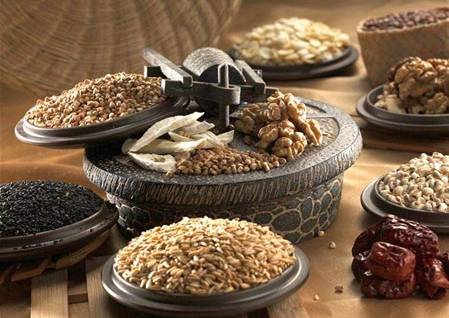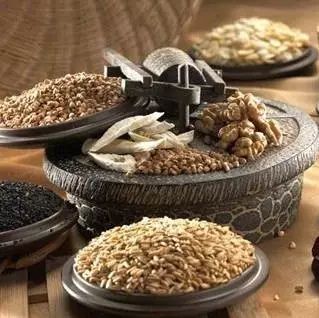 Click the above “Public Account” to subscribe!
Click the above “Public Account” to subscribe!
With the changes in lifestyle and the increasing prevalence of chronic diseases, “health preservation” has naturally become a topic of growing concern among people. Consequently, health products have gained immense popularity. Various types of health powders have emerged like mushrooms after rain, boasting a wide array of names and functions. Some of these health powders even contain traditional Chinese medicine (TCM) ingredients. Are the health benefits really as effective as advertised?

Health Powders for Special Populations
In recent years, the number of individuals with hypertension and diabetes has been steadily increasing, with a trend towards younger ages. Therefore, auxiliary treatments for such diseases have garnered significant attention. There are specific health powders designed for individuals with hypertension or diabetes. It is important to note that health powders cannot replace medications, and relying solely on these so-called “miraculous” health powders will not achieve the expected results or the effects advertised.
Many chronic diseases are closely related to unhealthy lifestyles and dietary habits. For instance, alcohol and tobacco are risk factors for hypertension, which can lead to cardiovascular and cerebrovascular diseases. An increase in alcohol consumption correlates with a higher incidence of hypertension. Individuals with heavy drinking habits have a significantly higher incidence of hypertension compared to the general population. Poor emotional health can also increase the secretion of related hormones, causing fluctuations in blood pressure. Therefore, to improve chronic disease conditions, changing unhealthy lifestyle habits is more effective than blindly consuming health powders.
Are the Ingredients in Health Powders Really Safe and Additive-Free?
Health powders come in various forms, such as lung-soothing and cough-relieving powders, spleen-strengthening and stomach-nourishing powders, calming and sleep-aiding powders, and brain-enhancing powders. In recent years, natural foods have become increasingly popular, and the main selling point of health powders is “natural, safe, and additive-free.” For example, beauty-enhancing powders are primarily made from Job’s tears (Coix lacryma-jobi), walnuts, black sesame seeds, grape seeds, Poria (Fu Ling), red dates (Hong Zao), and rose petals. Blood-nourishing powders are made from red dates, goji berries (Gou Qi), black beans, black rice, black sesame seeds, Chinese knotweed (He Shou Wu), red beans, donkey-hide gelatin (Ejiao), and dried apples. However, some consumers question the safety of commonly used ingredients in health powders, such as goji berries, Poria, and water chestnuts, many of which fall under the category of TCM. The combination of TCM ingredients must be approached with caution. Can we really trust the various health powders on the market that are so freely mixed? Are the advertised miraculous effects of these health powders genuine?
While health powders can be beneficial, the addition of TCM ingredients should be done with care. During the combination process, one must consider the four properties and five flavors of the medicinal ingredients, identifying which are warming, cooling, or cold in nature, and what the consumer’s constitution is, as well as what symptoms they wish to treat. Even with whole grain health powders, one cannot simply add TCM ingredients indiscriminately. Consumers should choose health powders based on their own constitution or purchase them cautiously under the guidance of a qualified TCM practitioner.
Meal Replacement Powders Are Different from Health Powders
Some health powders have transformed into meal replacement powders, especially during the summer when everyone is focused on weight loss, leading to a surge in sales. Individuals who are overweight not only face aesthetic concerns but are also at a higher risk of developing many chronic diseases. Is it appropriate to use whole grain health powders as meal replacement powders? Health powders, as health foods, cannot replace regular meals. Long-term consumption can lead to a decline in chewing function and affect the body’s absorption of nutrients, potentially causing gastrointestinal dysfunction over time. Therefore, occasionally substituting a meal with health powder is acceptable, but treating health powders as meal replacements is merely a marketing gimmick and a hopeful vision.
Weight loss is not as simple as just drinking meal replacement powders. It is best to develop a habit of drinking water before meals to increase satiety, which will help reduce the total amount of food consumed during meals. Avoid watching television or engaging in other activities while eating, as this can affect the secretion of digestive juices in the stomach and lead to gastrointestinal issues. To effectively control weight, one should pay attention to these details while eating, maintain a daily exercise routine, and consume fewer fried foods while increasing the intake of fiber-rich vegetables. Reducing meal portions at dinner and taking a multi-faceted approach is essential for healthy weight loss.
Avoid Long-Term Dependence on Health Powders
Grains are the mainstay of traditional Chinese diets and the primary source of energy for the body. Adhering to a grain-based diet can help avoid the pitfalls of high-energy, high-fat, and low-carbohydrate diets. However, whole grain health powders are merely a supplementary health food. Appropriate consumption can help regulate the balance of yin and yang in the body, but one should not exaggerate their “efficacy” or use them as a substitute for medications. Long-term use of a single type of “whole grain health powder” can be detrimental to health, and the differences between various formulas are often minimal, making it difficult to achieve the targeted effects claimed by manufacturers. Some consumers, seeking convenience or discounts, stockpile large quantities of health powders, which is not advisable. Health powders should not be purchased in excess at once, as the ingredients are ground and can oxidize and spoil easily. Additionally, ground health powders are susceptible to microbial contamination, leading to spoilage. If not consumed in a timely manner or stored improperly, health powders can clump, mold, or attract pests. Manufacturers also recommend consuming them within 60 days. Therefore, it is advisable to purchase in small quantities, consume them quickly, and store them in a cool, dry, dark place.
This article is an original piece by Haihe Zhongsheng.
All rights reserved. Please credit Haihe Zhongsheng (ID: haihering) when reprinting.

Haihe Zhongsheng
ID: haihering
Scan to reveal exciting content immediately


